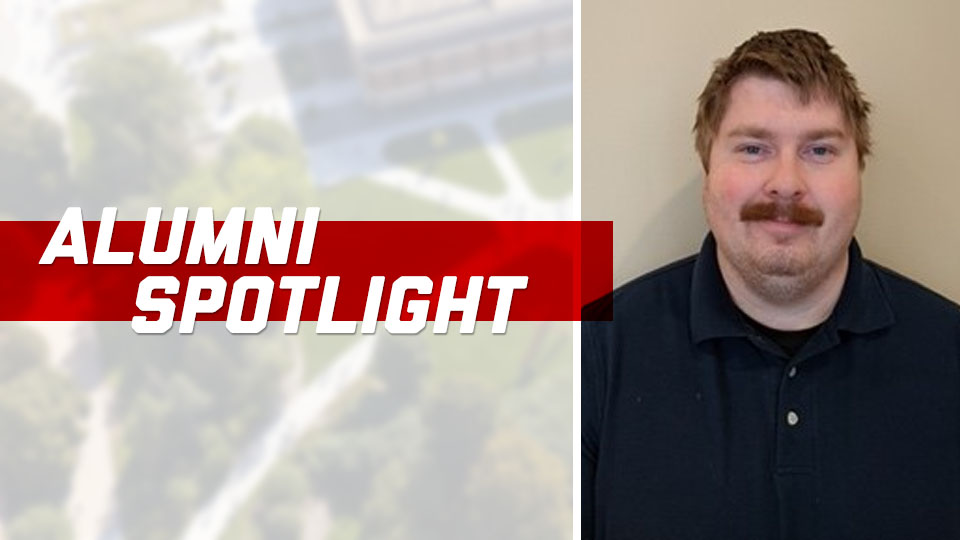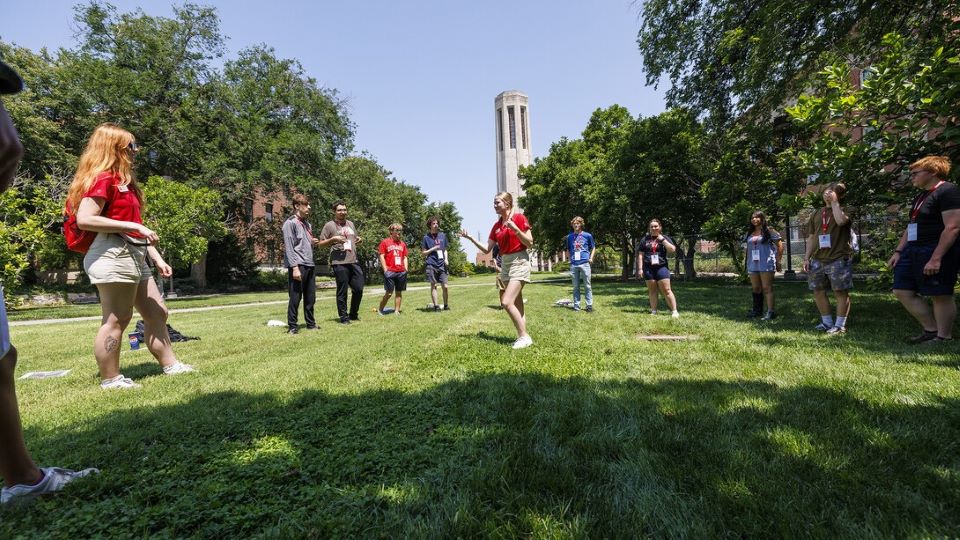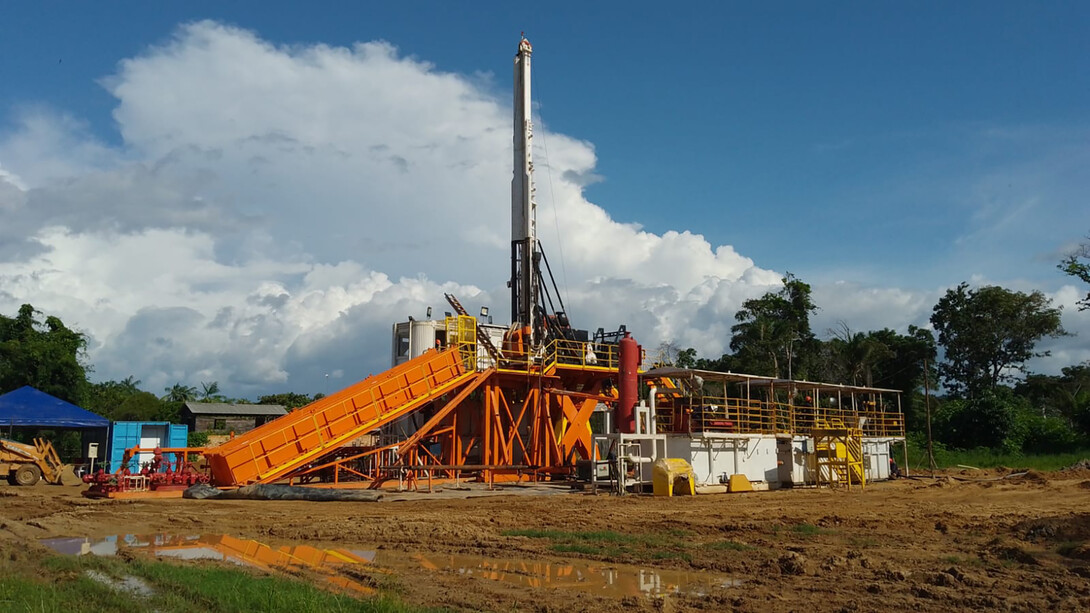
Major: Physics
Minor: Mathematics
Graduation Year: 2019
Who is your employer, and where are they located?
Spectral Energies LLC, Beavercreek, OH.
What is your job title and what kind of work does it involve?
Engineer and Operations Manager.
My job, day-to-day, consists of a few different things:
- Engineering solutions for complex scenarios to make data taking feasible.
- Assisting in the setting up of experiments and taking data in various labs.
- Engineering and constructing portable and table top Tunable Diode Laser Absorption Spectroscopy (TDLAS) systems.
- Performing TDLAS measurements in the field around the country.
- Engineering and constructing lasers and control racks for commercial pulsed-burst laser systems.
- Handling other day-to-day operations, planning, and implementation. These tasks may consist of shipping and receiving of large items, setting up large equipment for lab space, and the scheduling of experiments in those lab spaces.
These duties are spread out over contracts we have with the Air Force Research Laboratory and DTRA, as well as commercial contracts. We also work with universities Purdue and Central Florida for expanded research efforts with groups at these institutions.
What sparked your interest in physics?
Growing up, I loved STEM-related fields. I liked figuring out how things worked. I decided on physics because I thought it was the one of the most fundamental levels of understanding for how the universe worked, as well as still allowing me to be able to experiment and build things.
What do you see as the value of your degree?
It has provided a basic level of understanding for how things works. How the scientific method is practiced in real life. As well as giving me a base aptitude for problem solving that is incredibly helpful in a real-world career. It's provided a background that helps me understand how we can get temperature from an absorption spectroscopy measurement, or how I know how to use a high repetition rate laser diode to get the velocity of a flow field. This general knowledge helped me have a base to build up additional knowledge as necessary when the needs arose.
Were there any other people, activities, or events from your time at UNL that helped you get to where you are now?
Dr. Tim Gay had a big part with preparing me for the position I'm in now. He provided me with an understanding of scientific apparatus that would help me in my current position. Because of the opportunity I had in his lab, I know what Swagelok fittings are and their application. What an NPT thread is. What ConFlat fittings are and how to clean a vacuum chamber. He was available for me to ask questions whenever I had them, and answered them without any judgement. Dr. Gay also trusted me enough to allow me to have my own project that I was in charge of. He had me do my own research, make my own mistakes, and provided the resources necessary for me to be able to build my own confidence in my own research abilities. Because of his trust in me, I was able to get certified in the Nebraska Center for Materials and Nanoscience clean room, and construct my own experimental procedure for the chemical wet-etching of GaAs Microtips. The entire experience and the confidence and skills it gave me was invaluable.
Dr. Keith Foreman also was very helpful in building my experimental physics skills. He allowed me to ask questions and inquiry into his own experiment in which I had no involvement or any need to learn about. He instructed me in the importance of good note-taking and provided guidance when necessary when I was developing my own experimental procedures. He was one of a few people I felt comfortable being able to go to with questions, even if he was busy with his own work.
Dr. Eric Jones, a grad student at the time, provided me with extensive knowledge and friendship outside of the lab and in my classes. He was in a different lab also in the Atomic, molecular, and optical physics (AMOP) field, so I was able to learn about what his research was and he was very gracious and patient in teaching me about everything he was doing. Eric would later be one of my TAs and would provide equal amounts of patience and guidance in my own learning in ways that I could understand more easily. He also was one of the few people in the physics department who enjoyed lifting weights as much as myself and I would often be able to converse with him about these topics.
The Society of Physics Students (SPS) provided me the ability to travel to different schools around the area to provide teaching opportunities to middle school and younger age children. This helped me develop my teaching abilities and my skills in explaining topics more simply. This has become invaluable in discussing experimental setups and teaching other colleagues about topics in such a way that they are more easily understandable.
During my time at UNL I was also the president of the Nebraska Barbell Club for 2 years. My time in that club gave me the skills necessary to be able to manage people as well as perform presentations for funding proposals.
I'm sure there are dozens of other people and opportunities that I experienced at UNL that provided me with the skills and experiences that make me successful in my current position. I'm sorry that I am not able to remember and list them all here.
Tell us about the path you took to get to where you are today in your career and how you applied your education in physics to get here.
My path to get to my current position was not all that planned. I was applying for jobs my last year of college, getting rejected from all of them. Either due to not being what they were looking for, or just because my grades were not amazing in college. I graduated with less than a 3.0 GPA (I don't remember the exact number). A fellow undergraduate lab mate was looking at the APS website and found a job description for an optical engineer job opening. This job was in Ohio at a company named Spectral Energies. It sounded like a job I would be good at. I had basic laser knowledge, I knew how to align optical systems, and I would be great for the parts of the job that required being a lab technician. I applied and didn't hear anything. After about a month, I emailed the CEO directly with my resume and a cover letter that Dr. Gay helped me with revisions on. I received a reply and had a phone interview, then an onsite interview, then an offer. Once in that position I provided skills in areas that were lacking among various groups in the company, and, after 3 years, I am an Engineer and the Operations Manager of my company. I am providing assistance among numerous groups in my company and am contributing to research papers. This was an opportunity that I did not think would be possible without a Masters or PhD.
What are your future professional goals?
I would like to continue to move up in my company and provide experimental assistance for publishable and other related research efforts. Continuing to gain skills and knowledge necessary to be a project lead in the future is something I am working towards.


